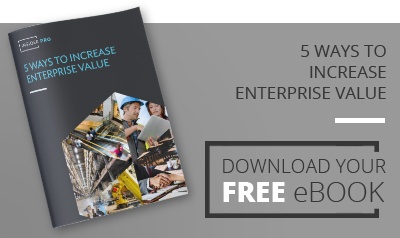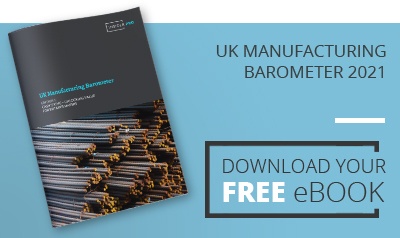Companies that have surpassed the £20m turnover mark have already worked hard to structure their business in a way that maximises business growth and the value of their enterprise;
They’ve been focused on driving sales
They've negotiated costs to the best of their ability
They’ve reviewed and optimised their operational processes.
In short, they’ve already examined each area of the business.
Yet many CEO’s and investors that I speak to know that they could do even better. They’re just not sure how.
They look at the growth rate of their competitors with some envy, or they review their margins and wonder how they could just chip away a bit more.
Or they know they’ve got a lead over the competition – but they’re closing in fast.
There’s something holding them back, but they can’t just put their finger on it.
Everyone in the business has exhausted their ideas.
People from outside the business have helped where they can.
So where's the problem?
In general terms, most leaders wanting to grow their business value, consider how they can impact the following levers:
- Grow sales
- Reduce costs
- Add more capacity
- Accelerate throughput
- Reduce risks
So they task their in-house teams to address the functional areas that each of them control and/or they bring in specialists to help with particular problems. They choose from a plethora of talent including procurement consultants, operations consultants, HR consultants, sales consultants, management consultants ....and more.
Of course, it's not that simple.
The sum of the whole is greater than the sum of the parts.
Invariably, "fixing" each element in isolation doesn't create the biggest impact for the business.
High growth businesses recognise that they need to tackle multiple things at the same time. They have the foresight to see that simply reducing costs or increasing sales isn't the answer.
Instead, they examine the cost structures, risks and processes across the entire breadth of their upstream supply chain, internal operations and downstream supply chain to come up with solutions that minimise cost, mitigate risk and improve revenue.
There are 5 ways to start the process of improving enterprise value:
1.Question the value of everything you do
This can be hard when you've always done things a certain way. Often it is a fresh set of eyes that questions the value, eg:
Why do you make these items? Could you outsource?
How do we improve shareholder value through this deal?
How do customers benefit from this change, and what value would they put on it?
2. Maximise selling opportunities
Apart from training staff to up-sell and cross-sell, there are operational issues that impact sales, eg:
Is your retail area optimised for sales? For example, did you know that restaurants sell more beer if it's kept at the right temperature? Sales are higher when fridges a) kept at the right temperature and b) kept full!
3. Think value creation, not cost
In some cases, spending more can add more value!
Spending more on pro-active maintenance could reduce downtime, and in an operation where downtime has significant impact on revenue, the extra spend on maintenance could be hugely valuable.
It's also important to understand just how an activity adds value. Digital advertising is a great example. Some measure the results in "click throughs" or "new contacts", but the real measure (in most cases, at least) should be actual revenue. Check that the results of any expenditure can be linked to your key business drivers.
4. Harness value in your supply chain
Working with suppliers to access the value they can add includes working together on technical innovations, logistics, product design, packaging and other elements that they and their suppliers may be able to influence.
Those businesses who appear to have a competitive edge are often the ones who are the best at working with their supply chain to take advantage of innovations and/or react quickly to changing customer demands.
5. Seek out ways to reduce risk
The biggest risk to a fast food restaurant is that the food isn't fast! So when it comes to making decisions about new equipment, it shouldn't be the price but the speed and reliability that takes priority.
Our eBook "5 ways to increase enterprise value" elaborates on each of the above points and also discusses:
- How do you calculate Enterprise Value?
- Why reducing costs or increasing sales isn't necessarily the key to improving Enterprise Value.
- What do high growth businesses focus on?
- Why do companies fail to reach their potential?
- Some real examples of driving outstanding levels of enterprise value.
The Insider Pro team have cultivated the skills needed to drive significant business growth and increases in enterprise value by fixing issues across the entirety of a business's operations and their supply chain.
In our eBook we are sharing 5 examples of the way we have driven outstanding levels of enterprise value for our customers.


